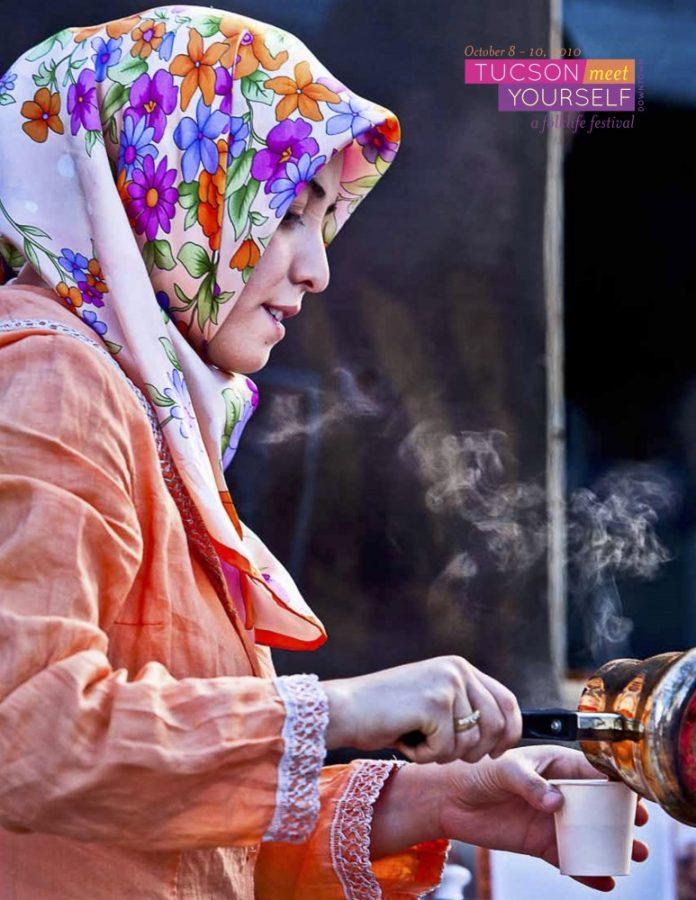Tucson Meet Yourself will be hosting its 42nd annual festival of the traditional arts of Southern Arizona’s and Northern Mexico’s living culture. Students for Sustainability participate in the annual three-day event with the Green Team to provide recycling and compost coaching to all sponsors.
The event features artisans, home cooks, dancers and musicians to celebrate beauty in diverse, informal and everyday forms, according to Tucson Meet Yourself’s website. One person on the Green Team, including SFS members, Compost Cats and a few Tucson community volunteers are stationed throughout the festival and are in charge of waste bins for compost, recycling and actual landfill waste.
“Our duty is to ensure anything and everything that can be diverted from the landfills, while at the same time educating patrons on what is recyclable, compostable and why,” said Trevor Ledbetter, chair of the SFS Marketing Committee. “We do this in an effort to push TMY-goers to increase proper recycling and composting in their personal lives.”
The College of Humanities served an important role as the public folklorist’s teaching unit for 13 years of the Endowed Fund Position. The public folklorist moved to the School of Anthropology in 2013.
The Southwest Folklife Alliance is a non-profit organization of the UA’s College of Social and Behavioral Sciences. According to SFA, they are the parent organization of the festival that supports economic development through cultural artists and professional institutes by spreading awareness of folk and heritage practices in the Border region corridor.
The three-day event takes place in downtown Tucson where the city of Tucson handles the disposal of the recycling and landfill waste from the event. Compost Cats take care of the compost collected throughout the event.
SFA said they are pleased to announce that this year’s festival will carry 110 folk artists, 95 musical performances, 55 food vendors including cultural clubs, associations, churches and families. Every year a “Cultural Kitchen” takes place and holds a contest of family recipes staged with students from City High School. About four years ago, the city of Tucson added “A Community Matters” area to reflect on arts and practices of folk communities in Tucson’s civic life.
In 1974, according to TMY staff and board, the words “diversity” and “multicultural” were barely beginning to enter the vocabulary of American popular culture in cities like Tucson. Despite the proximity to Mexico and the layer of history both Native and of the various migrations West, Tucson didn’t know its cultural sense. TMY changed the way Tucsonans shared the beauty, tradition and honor across distinct cultural enclaves.
“It literally brought neighbors out of the shadows to meet in the public square to dance, eat, sing and taste each other’s cultures,” said Maribel Alvarez, folklorist and program director of TMY. “A festival is not a pill that cures all social ills; we folklorist like to think that it is a bit of preventive medicine for the wounds of social inequality.”
Follow Gabriella Vukelic on Twitter.









